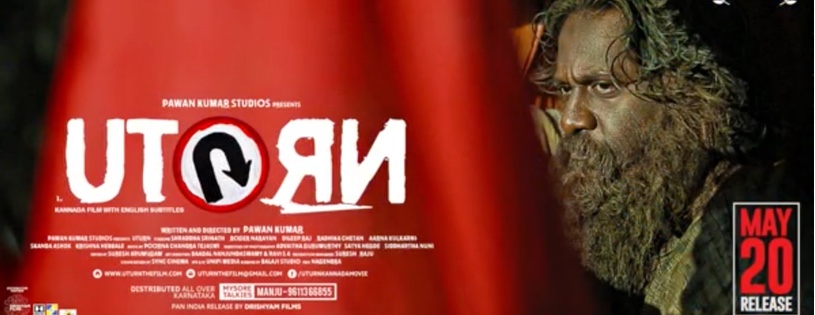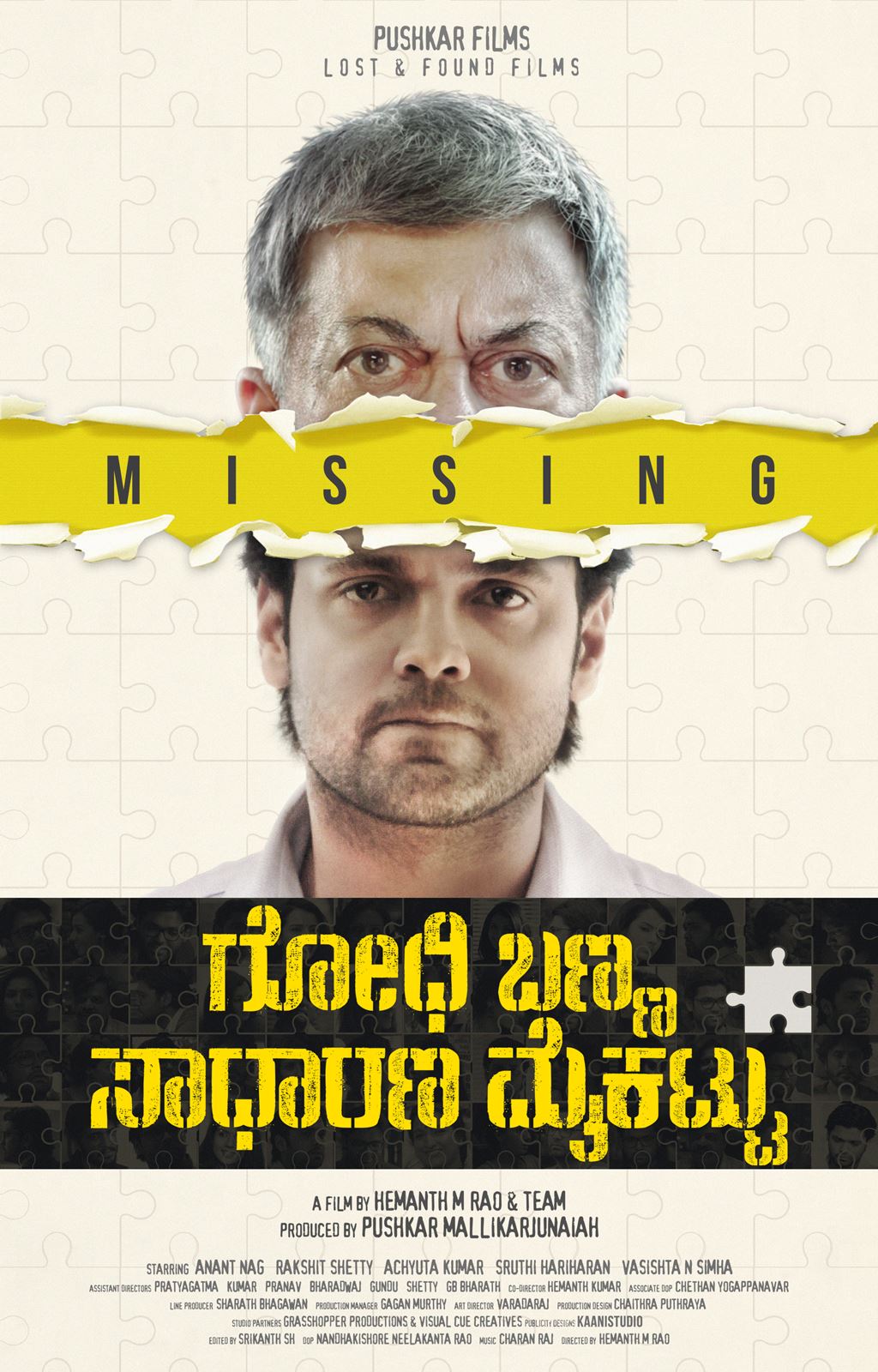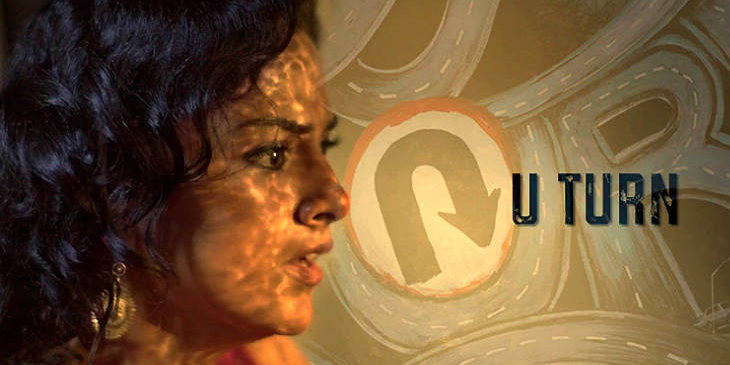What’s up with Kannada cinema?
Last week, I popped over to where you find the most random group of Indians- Quora, and found an endless supply of memes that praised latest Kannada films like U-turn and Godhi Banna Sadharana Mykattu along with a few others like Ulidavaru Kandanthe for not having too many songs, rowdies and ‘low class people’.

Image Credits – Troll Haiku’s FB page
If you have watched the trailer for U-turn, you would think it is a thriller or murder mystery, and that Godhi Banna Sadharana Mykattu is a movie about a man with Alzheimer’s. There isn’t much you would expect these movies to have in common. But the common setting of Bangalore binds these two movies together and seems to indicate a new direction in Kannada cinema.
U turn is from the director of Lucia, Pawan Kumar. The film follows an Indian Express intern who is writing a story about accidents on the double road flyover. In fact the junction where everything goes down overlooks the St. Joseph’s College campus. This prompted my friends to poke me endlessly during the slick intro montage that followed the twisty and convoluted double road flyover.
There’s something cathartic about seeing places you know or locations that instantly let you identify a place. I don’t mean the glamorous locations you see in travel brochures or the places that movies absolutely have to show you if it’s a certain city like with the Eiffel tower and Paris. I mean the upturned road dividers, the wet gravel that occasionally looks like it’s been struck by asteroids and the flyovers that seem to cut right across the city’s roofs that are distinctly Bangalorean.
Rachna, the intern, hires a homeless man to note down the licence plate numbers of anyone who moves the road dividers to makes an illegal U-turn. The homeless man, played by Ayirp Idennek, bears a striking resemblance to a certain lecturer from St. Josephs College, as one of my friends pointed out.

Image Credits: Ayirp Idennek’s FB Page
That aside, the fact that the movie decides to focus on a homeless man is very important in my opinion. The homeless are often a population that always seem to escape the eyes of Indian directors. Even in Hollywood they’re often just objects people throw money or pity at, and worse, provide comic relief.
After many suspense filled twists and turns and a series of deaths that has everyone scratching their heads, it becomes apparent to Rachna that it is a ghost that is behind all of this. There is so much potential to mess up here and the fact that the director and actors have you taking a vengeful traffic ghost seriously is testament to their talent.
Horror movies these days, both Indian and non-Indian, have this tendency to have jump scares accompanied by stupidly loud music, ghosts that are cos -playing that other ghost from the movie Grudge. Making something scary in a well-populated urban area or somewhere as open as a road is quite a mean feat. You might even think that the whole movie is an elaborate public service announcement about traffic rules but that doesn’t make it any less enjoyable.
Rachna makes for a very believable and likeable lead. It isn’t every day you see movies that can nonchalantly depict a woman (who doesn’t even have a real job) as a strong character who pursues her romantic or professional interests without getting condescending about it. The movie has a whole range of other characters who are unmistakably middle or lower class.
It nails everything from the middle class rented houses to the gruff policeman and occasional Kanglish dialogue. There is something believable and realistic about the whole setting and that’s really hard to find in horror movies.

Image Credits: catchnews.com
I did hear a few giggles in the theatre but I’ll chalk it up to Mangalorean sensibilities rather than the movie. It does tend to slow down a bit after the intense murders but it still keeps your interest. When my friends re-narrated the story in Tulu, they skipped the romance part altogether. I was never a fan of Kannada movies when I was a kid and no one in my family was either. We’d always complain about the random dance sequences and the songs and the melodrama.
I remember once seeing a Kannada movie on TV where an auto driver gets into argument in broken English with two passengers who insult him and demands that they respect auto drivers. For the isolated English school ICSE kids who threw the word “localite” around like the worst insult there was, this scene was something to laugh at. That attitude changed after I realized that Indian cinema has an ability to capture middle or lower class aspirations that just appeals to me.
Some audiences don’t want rom-coms, they don’t want to be reminded of their lives, they want to watch people fly with every punch and dance around every tree. Personally I think that’s better than half of the cheesy, unrealistic romances and explosion filled Americana that Hollywood gives us.
I think this memory came up because that old desire for the tree dancing hero doesn’t seem to be reflected here. It’s not the Hollywood Oscar-bait realism but a realism that’s about normal people with their normal lives and their normal struggles. Maybe that’s why I enjoyed Godhi Banna Sadharana Mykattu more than U-turn.
I’m not comparing these two movies that are trying very different things. But rather their setting and the sort of aspirations they seem to reflect. In Hemanth Rao’s Godhi Banna Sadharana Mykattu you see everything Bangalore. The movie follows an Alzheimer’s patient, Venkob Rao and his son Shiva Rao. It also ends up including a few gangsters and a doctor. Like U-turn it features the city of Bangalore and its inhabitants making no attempt to glorify or present a travel broacher.
The conversations, the lives, the problems of the main characters are ones that are very familiar in middle class households. Even the houses in the film are distinctly from a certain time period. Anant Nag is convincing in his portrayal of Alzheimer’s but it’s his relationship with his son that really makes the movie for me.
The silence between the two men and weird barriers their masculinity creates is extremely well portrayed. There are scenes where the father and son just struggle with their emotions and discomfort and resort to small talk about cricket and batteries to hide their awkwardness. I don’t think I’ve seen a more accurate depiction of the mix of awkwardness and guilt that turns up between fathers and sons and their generation gap.

Image Credits: http://godhibannasadharnamykattu.com/
The movie is nearly as atmospheric as U-turn featuring everything from the many yellowed missing posters to the glass windowed corporate offices. In some ways it depicts a divide between the old city and the new. The metropolitan, ambitious side where one can’t wait to fly away and the simpler, more content past where one goes to the local smoke shop to grab a cigarette or to do yoga at the park. There’s a lot of time given to the son who is discovering his father’s story slowly. It does tend to drag a bit but that doesn’t hurt because you spend your time wondering if the son will ever be reunited with the missing father.
Ranga and Manja are two gangsters who end up kidnapping people to cover up a crime. Ranga in particular becomes a character you sympathise with despite the fact he spends most of the movie wondering if he should kill the people he didn’t even want to kidnap in the first place.
The new direction that Kannada cinema seems to have taken is one that seems grounded in Bangalore. There are no random songs that take place in Europe, no people flying away after a few punches from the hero who’s crying about his mother. There’s this new element of realism that’s sneaking in. You see the dirty potholes, the yellowed posters, the smoke shops, the a****** cop and even the awkwardness between people.
Interestingly both these movies featured English subtitles. I’m not sure if the Kannada film industry is aiming to reach a wider, global audience. Or maybe it’s a response to the changing demographics in Bangalore city. Even the usual cesspool that is the YouTube comment section was overflowing with positive feedback and claims that the Kannada movie industry has finally returned to some long lost glory days. Only time can tell but if these movies are anything to go by; things are going to get really interesting.
Rijul Ballal
Latest posts by Rijul Ballal (see all)
- Taking Mahaquizzer - 22nd January 2017
- Overheard at the ATM - 29th November 2016
- ‘ಪೋಕೆಮಾನ್ ಗೋ’ (Pokemon Go) - 1st September 2016





